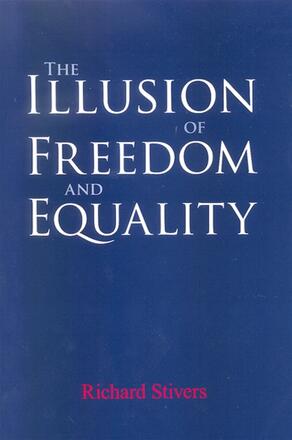
The Illusion of Freedom and Equality
Alternative formats available from:
Explores how Enlightenment values have been transformed in a technological civilization.
Description
Arguing that the ideology of freedom and equality today bears little resemblance to its eighteenth-century counterpart, Richard Stivers examines how these values have been radically transformed in a technological civilization. Once thought of as a kind of personal property and an aspect of the dignity of the individual, the context of freedom and equality today is technological before it is political and economic and is also now largely thought of in collective terms. Focusing on the work of Jacques Ellul and Max Weber, Stivers traces the development of freedom and equality in Enlightenment thought and American history and then proceeds to discuss their current ideologies, realities, and illusions.
Richard Stivers is Distinguished Professor of Sociology at Illinois State University and the author of Shades of Loneliness: Pathologies of a Technological Society and Technology as Magic: The Triumph of the Irrational.
Reviews
"Stivers challenges the general optimism about freedom and equality in modernity, and highlights the many dehumanizing aspects of the spreading technological culture …This fine book serves as a penetrating wake-up call to those who locate the redemption of the world in the steady export of the technology-rich Western lifestyle." — Metapsychology
"This is a well written and engaging text produced by a person who is deeply immersed in social theory, which he wields in a sophisticated and wide-ranging way. I would locate his writing in a distinctive genre of sociological writing, which might aptly be characterized as sociological meditation. What makes his book particularly compelling is the fact that it tackles the most central and enduring issues of our age, which he addresses in a manner that transcends the immediacies of everyday economic and political reality and appreciates both the historical roots and the deep structural foundations." — Peter Kivisto, Augustana College
"This outstanding and timely book faces head-on current political issues surrounding freedom and equality." — Norman K. Denzin, University of Illinois